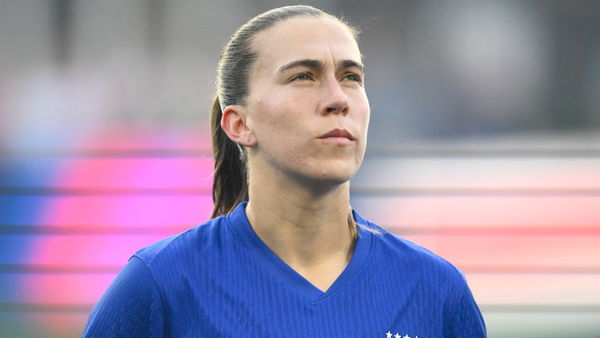

A soccer match might last 90 minutes, but the recovery can stretch on for days, especially when players are pushed to their limits by a relentless schedule. At the 2024 Paris Olympics, the grueling back-to-back fixtures took a toll on everyone, pushing athletes to their breaking points. The cramped calendar left no room for rest or recovery, forcing teams to dig deep to stay competitive. Even USWNT star Sam Coffey described the Summer Games’ schedule as “very challenging,” echoing the frustration of her coach, Emma Hayes, who faced the daunting task of keeping her squad fresh and focused in such a demanding environment.
For context, during the group stages, not more than one and a half days of rest was given to all the teams, making it hard for players to even breathe. “It was definitely grueling, very challenging,” said Coffey, during a presser for Portland Thorns alongside Sophia Smith as the duo finally returned for their domestic duties. “Obviously, there’s a lot of factors at play with an international tournament, especially in the Olympics.”
While the players had no choice but to comply with the schedule, the midfielder admitted that every player would like to get some kind of space during the fixtures. “I think we’ll always say yes to more rest between games but we have the best medical team and support staff to help us, be ready to play every 48 hours. But definitely, mentally, emotionally, physically, it takes a toll but yeah we’ll never say no to a little extra time between games,” concluded Coffey.
ADVERTISEMENT
Article continues below this ad

Notably, the majority of the players’ rest time was consumed by commuting during the Summer Games. Except for matches at Parc des Princes, most games were held in stadiums outside of Paris, in cities like Marseille and Nice. More than that, after playing two knockout games that went into extra time, Team USA faced the additional difficulty of traveling outside Paris and then returning to the French capital.
On the other hand, Coffey earlier seemed quite delighted that her teammates managed to win back-to-back fixtures that lasted for over 120 minutes. “More than anything, I learned about our resilience and our ability to do hard things and to come together when things are tough and just get the job done,” said the 25-year-old during the Olympic campaign.
Regardless, fixture congestion has remained one of the biggest enemies of teams and Coffey’s boss Emma Hayes didn’t hold back on unleashing some infuriating words.
ADVERTISEMENT
Article continues below this ad
What’s your perspective on:
Sam Coffey and Emma Hayes are right—should the Olympic committee rethink the grueling schedules?
Have an interesting take?
Before Sam Coffey, what did Emma Hayes say about the congested Paris Olympic calendar?
Already, soccer was kicked off a day before the opening ceremony of the Paris Olympics and still, there are complaints about the packed schedule. While the USWNT was among the few teams that managed to overcome this adversity, Emma Hayes called out to the Olympic Committee to create a more suitable schedule for the 2028 edition, which will take place in Los Angeles.
“It’s important that the players have space to breathe and relax and not have everything so formal. When we work, we work. And when we have joy, we have joy.” For those unaware, this is the very same Emma Hayes protesting about the congested fixture, who defended her rigid ‘no-rotation’ policy by saying she wants her group to ‘suffer.’
ADVERTISEMENT
Article continues below this ad

via Reuters
Paris 2024 Olympics – Football – Women’s Gold Medal Match – Brazil vs United States – Parc des Princes, Paris, France – August 10, 2024. Emma Hayes coach of the United States celebrates with Samantha Coffey of the United States after winning gold. REUTERS/Isabel Infantes
Sam Coffey’s fellow teammate Naomi Girma was once also not in favor of the jammed matchdays but praised her side for making their way out of the adversity. Regardless, it remains to be seen whether the concerned authorities will take any steps over this long-term issue.
ADVERTISEMENT
ADVERTISEMENT
ADVERTISEMENT
ADVERTISEMENT


Sam Coffey and Emma Hayes are right—should the Olympic committee rethink the grueling schedules?